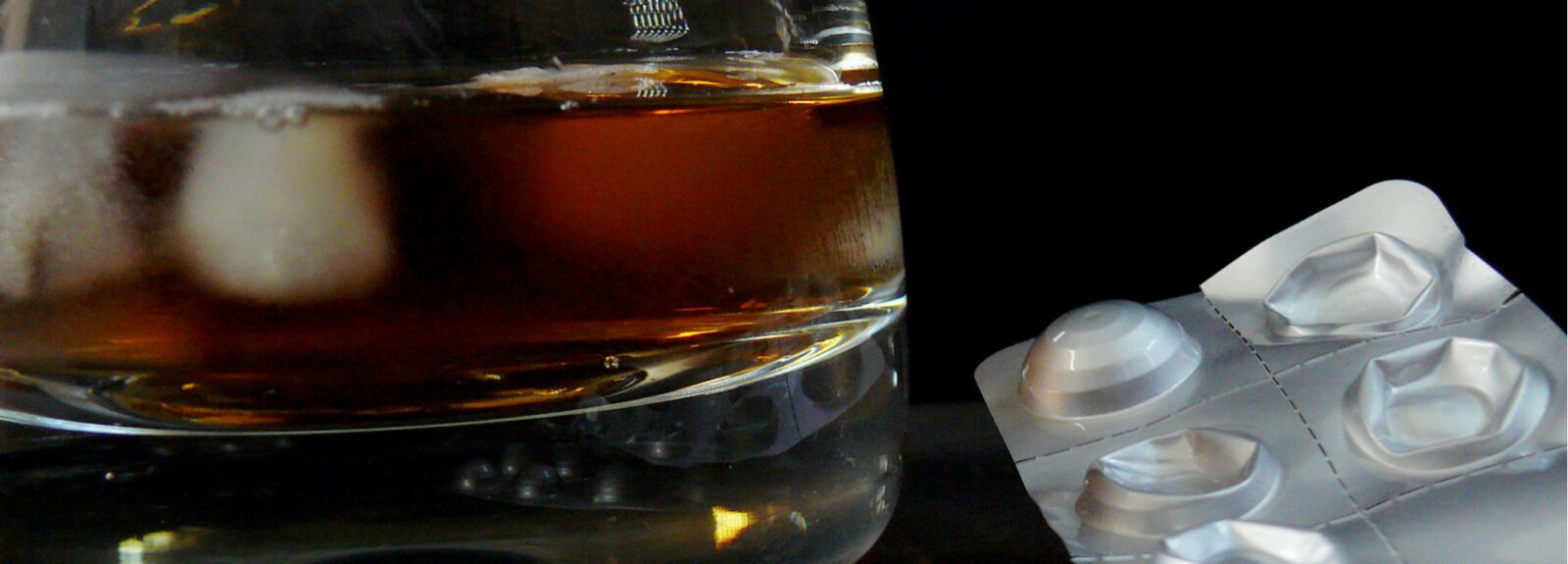Alcohol and Antidepressants
People who struggle with depression should avoid alcohol in general. Drinking tends to worsen the depression. Also, people struggling with depression are more likely to become addicted to any drug as they tend to be coping mechanisms for the underlying depression. The most common type of medication for depression are SSRIs (Selective Serotonin Reuptake Inhibitors) and drinking while on this medication can more than negate the effects of the medication.
Drinking while taking SSRIs leaves people feeling fatigued and more impaired. The depression tends to get worse, as do the side effects of the medication. Another type of antidepressant, MAOI (MonoAmine Oxidase Inhibitors), can cause dangerously high blood pressure when combined with alcohol.
The above risks may cause some to stop taking their medication so that they can drink. This is not recommended as medication doses are designed to be at the right level if taken as prescribed. Medications may not achieve the intended result of relieving the depression if they are not taken as prescribed. This can lead to more alcohol abuse, deeper depression and a higher risk of suicide.
Anxiety and sleeping medication also pose risks when combined with alcohol as both are sedatives that combine with dangerous effect. Another risk here is that both drugs are processed in the same way by the liver, meaning that it takes the liver longer to break them down, leaving users at a higher risk of overdose.
Alcohol and Energy Drinks
Many popular drinks involve mixing high doses of sugar and caffeine with hard liquor, like a vodka and red bull. These drink combinations can lead to excessive drinking with an increased risk of alcohol poisoning.
While drinking poses risks in its own right, it also has the self-limiting property of causing drowsiness. People can sleep off their drunken state, hopefully before they do anything too dangerous. Energy drinks have the opposite effect, and keep people alert and ready to continue drinking. Individuals who consume alcohol and energy drinks together underestimate how drunk they are. They tend to drink more, making other risky behavior, alcohol poisoning and addiction more likely.
Alcohol and Painkillers
Drinking and taking over-the-counter painkillers can increase the effects of the alcohol, which is what some teens and young adults desire. The risks, in this case, include damage to the kidneys or liver, depending on the painkiller.
Combining alcohol with prescription opioid painkillers, even in small doses, can be deadly. There are several reports of people dying from an overdose when they combined prescription painkillers with as little as a single drink. The problem is that both drugs have a sedative effect, slowing down breathing and, in the case of overdose, stopping breathing altogether. Even when not deadly, the combination accelerates liver damage.
Treatment for Alcohol and other Drug Abuse
There are various reasons that people may want to combine alcohol with other substances. Some want to feel more inebriated; others just want to have a few drinks and happen to be on medications. Whatever the reason, there are serious risks involved in mixing alcohol with other drugs.
Being unable to stop drinking while on other medications, or intentionally using other substances in combination with alcohol, is a sign of potential addiction. Sandstone Care offers addiction treatment that also addresses any underlying mental health concerns such as depression and anxiety. Call today to start your journey of recovery.



